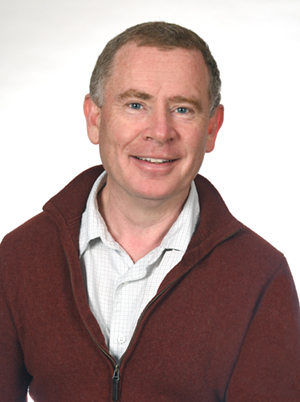Kieron Burke is a distinguished professor in both the chemistry and physics departments at UC Irvine. His research focuses on developing a theory of quantum mechanics called density functional theory. He currently serves as Interim Dean of the School of Physical Sciences.
Density functional theory is a way of solving the equations of quantum mechanics for the electrons in any substance. Because DFT equations can be solved relatively quickly on modern computers, DFT has become a very popular tool in many branches of science, especially chemistry and materials science. Last year, at least 30,000 scientific papers used DFT. For example, hydrogen sulphide was predicted by DFT calculations to have a high superconducting temperature under pressure, and a year later, it was tested and became the world-record holder, at 203K.
Prof Burke works on developing all aspects of DFT: formalism, extensions to new areas, new approximations, and simplifications. His work is heavily used in materials science, chemistry, matter under extreme conditions (such as planetary interiors or fusion reactors), magnetic materials, molecular electronics, and so on. He has given talks in theoretical chemistry, condensed matter physics, applied mathematics, computer science, and even organic chemistry. His graduate students and postdocs usually come from either the chemistry or physics departments, but his undergraduate researchers also come from math, computer science, and engineering. He believes that the most impactful advance in 20th century physics was the development of quantum mechanics, without which we cannot understand chemistry and materials. He also believes that there are few problems in theoretical science whose solution has more immediate impact than the improvement of DFT. The more accurate, reliable, and widespread DFT calculations become, the sooner we will have novel materials and drugs, and the more we will understand both our own planet and others. Over the last decade, he has pioneered new applications of machine learning to electronic structure problems, including collaborations with Google Accelerated Science and Google DeepMind. His graduate course in machine learning for scientists is one of the largest and most popular in the school of physical sciences.
Prof Burke is also a fellow of the American Physical Society, the British Royal Society for Chemistry, and the American Association for the Advancement of Science, and a member of the International Academy of Quantum Molecular Sciences. He is known around the world for his many educational and outreach activities. According to Google scholar, his work is cited more than 25,000 times each year.

Website:
Position:
- Faculty
